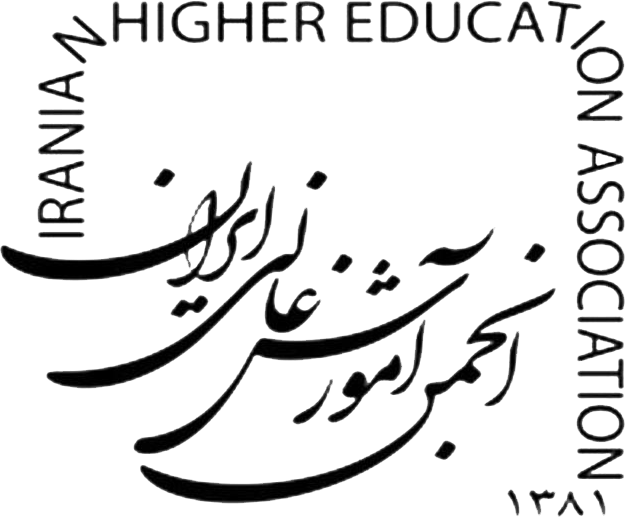Volume 16, Issue 2 (2024)
ihej 2024, 16(2): 66-90 |
Back to browse issues page
Download citation:
BibTeX | RIS | EndNote | Medlars | ProCite | Reference Manager | RefWorks
Send citation to:



BibTeX | RIS | EndNote | Medlars | ProCite | Reference Manager | RefWorks
Send citation to:
Yousof Boroujerdi R, Davarpanah S H. An Exploration of the Professional-Cognitive Barriers to Theorizing Among Faculty Members in the Humanities. ihej 2024; 16 (2) :66-90
URL: http://ihej.ir/article-1-2065-en.html
URL: http://ihej.ir/article-1-2065-en.html
1- Assistant Professor of Educational Management, Department of Education, Faculty of Education and Psychology, University of Isfahan. Isfahan, Iran , r.boroujerdi@edu.ui.ac.ir
2- Assistant Professor of Higher Education Management, Department of Education, Faculty of Education and Psychology, University of Isfahan. Isfahan, Iran
2- Assistant Professor of Higher Education Management, Department of Education, Faculty of Education and Psychology, University of Isfahan. Isfahan, Iran
Abstract: (2316 Views)
Objective: Theorizing in the humanities is a foundational pillar of scientific advancement, with university faculty who play an important role in this regard. However, humanities faculty face significant barriers that hinder theorizing. This study explores the cognitive and professional obstacles to theorizing among Iranian higher education humanities faculty.
Method: This research is applied in purpose that employs a qualitative phenomenological approach for data collection. Potential participants included all professors and experts in the humanities field in Iran. The sampling was purposeful and the selection method was based on the opinions of "key experts", with data collected through unstructured interviews. The sample size was determined based on the theoretical saturation criterion, resulting in a total of 15 interviews. Data were then analyzed through thematic analysis following Smith's (1995) interpretative phenomenology method, conducted in three stages using MAXQDA24 software.
Findings: The cognitive and professional barriers to theory development among humanities faculty were identified as one main theme, two sub-themes, and seven fundamental themes relating to cognitive barriers, and eight fundamental themes relateing to professional barriers. Cognitive barriers include lack of awareness of one's mission, latent ignorance of one's situation, lack of awareness or neglect of societal issues, neglect of qualitative research methods, simplistic approach to basic research, lack of awareness of the benefits of conceptualization, and being single-minded and not equipped with other peripheral sciences. Professional obstacles also include a low tendency towards interdisciplinary and transdisciplinary research, lack of presence in the field (society and industry), superficiality and the prevalence of shadowing, lack of specialized fields of study, failure to go beyond existing science and knowledge to solve problems, failure to operationalize what has been learned, single-role positioning of faculty members, adherence to undeveloped and unconstructive research approaches and methods.
Conclusion: By identifying barriers to professional cognitive theorizing among faculty members in the humanities, the present study has led to a better understanding of this issue and to taking appropriate measures to reduce and eliminate these barriers. Overcoming these barriers necessitates enhancing cognitive and professional development programs, revising academic evaluation and promotion systems, promoting interdisciplinary studies, and strengthening industry engagement to smooth the path of theorizing in the humanities.
Method: This research is applied in purpose that employs a qualitative phenomenological approach for data collection. Potential participants included all professors and experts in the humanities field in Iran. The sampling was purposeful and the selection method was based on the opinions of "key experts", with data collected through unstructured interviews. The sample size was determined based on the theoretical saturation criterion, resulting in a total of 15 interviews. Data were then analyzed through thematic analysis following Smith's (1995) interpretative phenomenology method, conducted in three stages using MAXQDA24 software.
Findings: The cognitive and professional barriers to theory development among humanities faculty were identified as one main theme, two sub-themes, and seven fundamental themes relating to cognitive barriers, and eight fundamental themes relateing to professional barriers. Cognitive barriers include lack of awareness of one's mission, latent ignorance of one's situation, lack of awareness or neglect of societal issues, neglect of qualitative research methods, simplistic approach to basic research, lack of awareness of the benefits of conceptualization, and being single-minded and not equipped with other peripheral sciences. Professional obstacles also include a low tendency towards interdisciplinary and transdisciplinary research, lack of presence in the field (society and industry), superficiality and the prevalence of shadowing, lack of specialized fields of study, failure to go beyond existing science and knowledge to solve problems, failure to operationalize what has been learned, single-role positioning of faculty members, adherence to undeveloped and unconstructive research approaches and methods.
Conclusion: By identifying barriers to professional cognitive theorizing among faculty members in the humanities, the present study has led to a better understanding of this issue and to taking appropriate measures to reduce and eliminate these barriers. Overcoming these barriers necessitates enhancing cognitive and professional development programs, revising academic evaluation and promotion systems, promoting interdisciplinary studies, and strengthening industry engagement to smooth the path of theorizing in the humanities.
Keywords: higher education, conceptualization, theorizing, humanities, phenomenology, cognitive barriers, professional barriers
Type of article: Research |
Subject:
Special
Received: 2024/10/27 | Accepted: 2024/12/28 | ePublished ahead of print: 2025/01/23
Received: 2024/10/27 | Accepted: 2024/12/28 | ePublished ahead of print: 2025/01/23
Send email to the article author
| Rights and permissions | |
 |
This work is licensed under a Creative Commons Attribution-NonCommercial 4.0 International License. |




